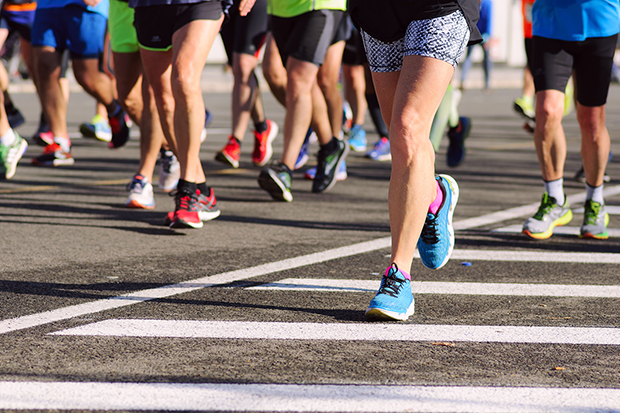Take on the Challenge: Harnessing Your Full Potential in an Exciting Half Marathon

Will you push yourself to your boundaries on an amazing experience that will give you incredible satisfaction? Discover the thrilling world of half marathons. Years ago, both experienced and new runners entered long-distance races. Dedicated, persistent, and endurance-training half marathon runners cover 13.1 miles (21.1 km). Runners must work hard to finish, testing their mental and physical strength. However, what makes a half marathon challenging? The rewards go beyond marathon completion. Regular long-distance running may benefit your heart, lungs, muscles, and mind.
Preparing for Success: Training Strategies for a Strong Half Marathon Performance
The half marathon requires a well-structured training strategy and effective training methods. Distance running programmes, endurance training, and cross-training will help you build stamina for race day. To increase mileage and intensity, you need a detailed half marathon training plan. Your body can adjust and gain stamina to finish the event. Long, tempo, interval, and recovery runs improve cardiovascular fitness and running performance. Half marathon preparation requires cross-training and running-specific routines. Resting your muscles from jogging, cycling, swimming, or strength training may prevent overuse issues. Cross-training boosts fitness and race-day stamina. Build physical and mental resilience to maximise your training. Maintaining your training plan requires consistency, listening to your body, and resting enough. To do well in half marathon training, you need enough sleep, food, water, and stretching. Use these half marathon training strategies to succeed on race day. Each person’s path is different. Thus, these strategies must be adjusted to meet goals and skills. Commitment, persistence, and smart training will prepare you for a strong half marathon performance.
Tips to Fuel Your Body and Optimise Performance During a Half Marathon
Half marathon training requires more than physical fitness. It also requires sufficient nutrition to perform well on race day. Moreover, race day nutrition includes pre-race meal planning. You should opt for easy-to-digest food for marathon energy. Hydrating is also important, so make sure to drink sufficient water. Other than your nutrition, overcoming challenges and doing well requires mental strength. Distance runners need the right attitude to stay motivated, overcome race day nerves, and finish a Leeds half marathon or other endurance event. By preparing physically, physiologically, and mentally, you are bound for victory!
Race Day Essentials: Must-Have Gear and Tips to Ensure a Smooth Experience
Race day might be pleasant or miserable, depending on the gear and advice you follow. This section covers everything from a complete running gear checklist to comfortable half marathon shoes and weather-appropriate clothing. A well-planned running gear checklist comes first. It provides proper clothing, hydration packs or belts, energy gels or snacks, sunscreen, and other personal preferences. Before leaving for the race, check off each item on your checklist to feel more safe and prepared. Your shoes are essential to jogging. Running shoes built for half marathons or long-distance races provide support and cushioning to prevent injuries. However, refrain from using your new shoes for the first time during the race day. Instead, allow yourself to get used to your running shoes by using them for a few runs before the event. Additionally, clothing properly on race day, whether it’s hot and sunny or cold and wet, will greatly improve your comfort. With these essential tips and gear suggestions, you’ll be ready for any race day challenge. Let’s begin and make this a fantastic experience!
Also Read: Space XO The best technique to play opening games without running out
Celebrating Your Achievement: Post-Race Recovery and Reflections on Your Accomplishment
Good job finishing your half marathon! After finishing this amazing event, focus on recovery and reflection. After a tough race, take care of your body and mind for optimal recovery and performance. Post-race rehabilitation includes treating hurting muscles. After a Leeds half marathon, your muscles are usually fatigued and uncomfortable. Consider using some pain-reduction techniques in your recovery. Starting with simple stretching can reduce muscle tension and promote flexibility. Light yoga or static stretches for the primary muscle groups may relieve pain. Foam rolling may also help loosen muscular knots and speed healing. Nutrition is also important for post-race recuperation. Meals that are nutrient-dense can aid in restoring vitality and repairing tissues. A balanced diet should include lean proteins, complex carbs, healthy fats, and lots of fruits and vegetables. Hydration is crucial during recovery. Drink water all day to replenish fluids. Electrolyte-rich drinks or sports drinks can replace minerals lost through perspiration. Though physical rehabilitation is crucial, don’t forget mental recovery. Consider your accomplishments and reward yourself for your marathon preparation. Get a massage or spend time with loved ones who have supported you to celebrate your success. You’ll recuperate differently after a race based on your fitness and health. Just make sure to always get customised advice from a healthcare professional or coach. Keep in mind that prioritising post-race recovery and introspection helps you recover and prepare for success. Take time to relax, celebrate, and plan your next run.





